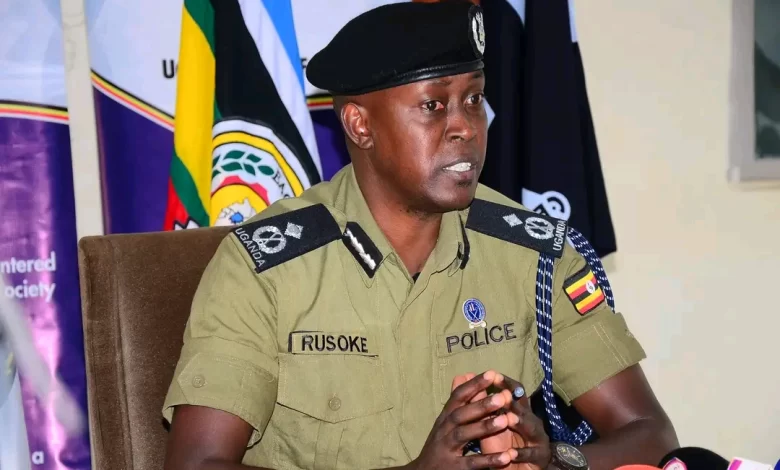DRUGGED AND ROBBED: The silent danger on Uganda’s upcountry buses
In recent weeks, a disturbing trend has emerged on the busy routes connecting Kampala to destinations like Kigali, Kabale, and Mbarara. Passengers are reporting incidents of being sedated and waking up hours later, stripped of their belongings. While this crime wave has sent shockwaves through the public, experts warn that it may only be the tip of the iceberg.

As dawn breaks over Kampala’s bus terminals, travelers board buses heading to upcountry destinations, clutching their bags and waving goodbye to loved ones.
For most, it’s a routine journey to visit family or return to work. However, beneath the hustle and bustle lies a growing and alarming threat: passengers being drugged and robbed on these buses.
In recent weeks, a disturbing trend has emerged on the busy routes connecting Kampala to destinations like Kigali, Kabale, and Mbarara. Passengers are reporting incidents of being sedated and waking up hours later, stripped of their belongings. While this crime wave has sent shockwaves through the public, experts warn that it may only be the tip of the iceberg.
Dr. James Mwesigwa, a criminologist, describes this as a sophisticated and evolving form of theft. “What we are witnessing now is an organized method of robbery. It’s a form of social engineering where the perpetrator uses charm and familiarity to lower the victim’s defenses before striking,” he says.
The modus operandi is as chilling as it is cunning. The perpetrators typically pose as friendly passengers, striking up conversations with their victims. As the bus journey progresses, they offer snacks or drinks, often laced with sedatives. The drugs act fast, rendering the victim unconscious, giving the robbers ample time to search through their belongings undisturbed.
One recent victim, Amon Basikana, 24, was traveling on a Jaguar bus from Kampala to Kigali. He recalls his experience with a tremor in his voice. “I was chatting with a man who seemed very kind. He offered me a soda, and I accepted. That’s the last thing I remember before waking up at the hospital,” Basikana says. He lost his phone, wallet, and a backpack filled with personal items.
Expert Insights: Understanding the Drugging Tactics
According to Dr. Mwesigwa, the use of sedatives in these incidents indicates a dangerous escalation in criminal tactics. “These sedatives are often colorless, tasteless, and fast-acting. They can be easily dissolved in drinks without the victim noticing. The victim typically falls asleep within minutes, leaving them vulnerable,”
He adds that the most commonly used drugs in such cases are benzodiazepines like diazepam, which can induce a deep, prolonged sleep. “The effects can be severe, especially in high doses. Victims often wake up disoriented and confused, with no recollection of what happened,” he notes.
Police and Bus Operators Respond
With the festive season around the corner, when upcountry travel spikes, authorities are scrambling to respond to this rising threat. The Uganda Police have launched a public awareness campaign in collaboration with bus operators, aiming to educate travelers on the risks and how to protect themselves.
Police spokesperson Kituuma Rusoke says they are stepping up security measures. “We have increased undercover officers on some of the most affected routes. We are also working closely with bus companies to install surveillance and conduct random checks,” Rusoke says.
Bus operators are being urged to monitor passenger interactions closely and to report any suspicious behavior. They have also started issuing warnings to passengers to be wary of accepting food or drinks from strangers during their travels.
The Psychology Behind the Crime
To understand why these tactics are so effective, we spoke with psychologist Dr. Grace Tumushabe. She explains that the perpetrators exploit a natural human tendency to trust and reciprocate kindness. “In our culture, sharing food is seen as an act of goodwill and friendliness. The criminals use this to their advantage, masking their malicious intentions behind gestures that seem harmless,” Dr. Tumushabe says.
This manipulation of social norms and trust is what makes these incidents particularly insidious. “People don’t expect to be targeted in such a way, especially in a public space like a bus. The attackers rely on this false sense of security,” she adds.
While the police and bus companies work on preventive measures, experts like Dr. Mwesigwa advise travelers to take personal precautions. “Trust your instincts. If someone you don’t know insists on offering you food or drinks, politely decline.”
The surge in these incidents is a sobering reminder of the evolving tactics of criminals targeting unsuspecting travelers. As authorities step up their efforts, the public must also play its part by staying vigilant.






